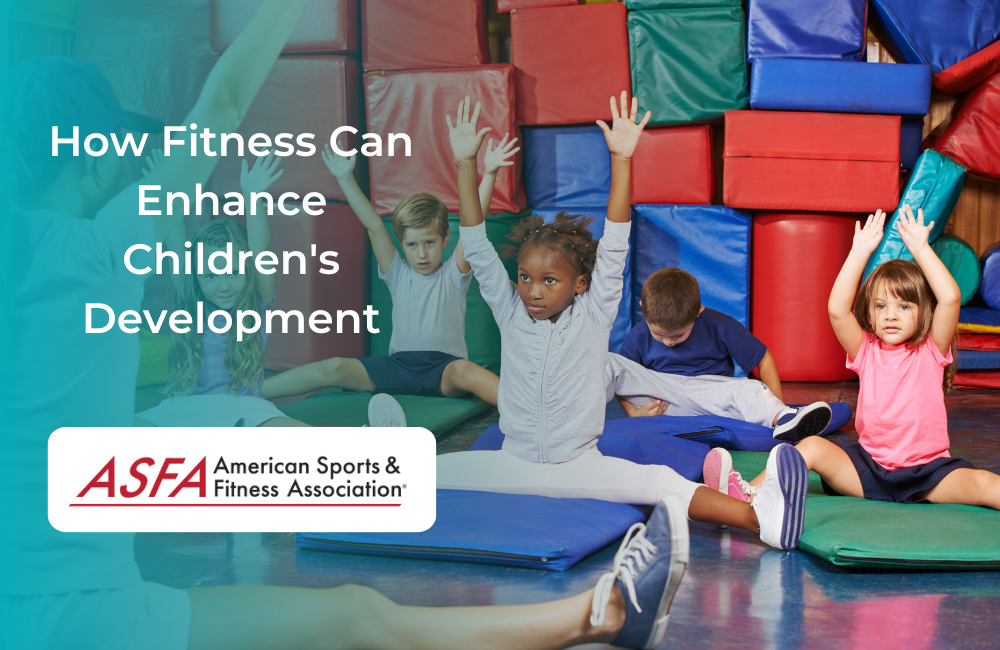
How Fitness Can Enhance Children's Development
There are many benefits to having your child involved in organized sports. Not only do they learn valuable lessons about teamwork and discipline, but they also develop physically as well. However, if you believe children should be playing outside and running around for fun instead of hitting the gym with their parents, this article is for you!
Physical fitness is an important part of the body and mind.
Physical fitness is an important part of the body and mind. It helps your body to function better, and it helps your mind to function better too.
Physical activity is one way to be physically fit, but there are others as well:
Structured physical activities like sports or exercise programs are good for you. These activities allow you to get active in a specific way with other people who share similar goals, such as improving their speed or strength or learning to play a new sport together as a team.
Unstructured physical activities like playing outside or riding your bike can also help keep kids active if they're done regularly enough for them, not just once but several times per week over several months at least (or even years). Children who do these types of things tend to do better academically than those who don't because they're always moving around, which makes them smarter!
Good physical fitness is essential for growth and development.
The benefits of regular physical activity include improved cardiovascular health, stronger bones and muscles, better coordination and balance, reduced risk of obesity (and other chronic diseases) in adulthood--and more.
When children are fit, they can do more things: run faster. Jump higher. Throw farther than their peers who aren't as physically fit; they also have more energy for playing outdoors with friends or doing homework at home after school instead of napping on the couch like some kids do when they're tired!
Physical activity helps children perform better in school, too; studies show that kids who participate in organized sports make higher grades than those who don't play sports because being active makes them feel good about themselves, which leads them to want to try new things like taking advanced classes at school instead sticking with easier ones all day long just because they're scared no one else will accept them if they fail those classes later down the road when everyone else gets older too old listen carefully now.
Regular physical activity boosts your child's self-esteem.
Regular physical activity boosts your child's self-esteem. Active kids tend to have a more positive body image and higher confidence levels than their inactive peers. They also feel better about themselves when they're around other kids, making it easier for them to make friends.
Younger children may not be aware that exercise impacts how they feel about themselves. Still, as they age, they'll see the changes in their bodies and understand why working out benefits them (and everyone else). This understanding can help boost their self-confidence even further because now there's an explanation behind why exercise makes people feel good!
Being fit makes it easier for children to concentrate on their studies.
Being fit can help children focus on their studies. Physical active children tend to be more alert and attentive than sedentary children, which is important for learning.
Exercise has been shown to improve concentration in students by improving their brain function, increasing blood flow to the brain, and releasing chemicals that promote alertness and reduce stress. Regular physical activity also helps kids stay focused during long hours of study or exams when they need all the energy they can get!
Studies have shown that children who eat healthy snacks like fruits or vegetables before doing homework tend to do better than those who don't eat any snacks at all--and this applies not only during schoolwork but also when it comes time for an exam!
Physically active children tend to do better in school, have a lower risk of being overweight and obese, and may be at less risk for developing diabetes, heart disease, or high blood pressure.
Physical activity can also help children with their concentration. Physically fit children tend to have more energy than those who aren't, so they're better able to focus on whatever task is at hand, whether paying attention in class or completing homework assignments.
Being physically fit gives kids confidence too! When kids know that they're strong enough to complete tasks like climbing stairs without getting tired easily (or even running), then this gives them the self-assurance needed for when they need more challenging tasks such as learning new skills like playing sports or instruments - which will make them feel proud of themselves when successful outcomes happen because of their hard work!
Conclusion
In conclusion, being physically active is important for children. It helps them develop better self-esteem and concentration skills, leading to better academic performance. If you want your child to excel in school and beyond, then make sure they get enough exercise every day!




